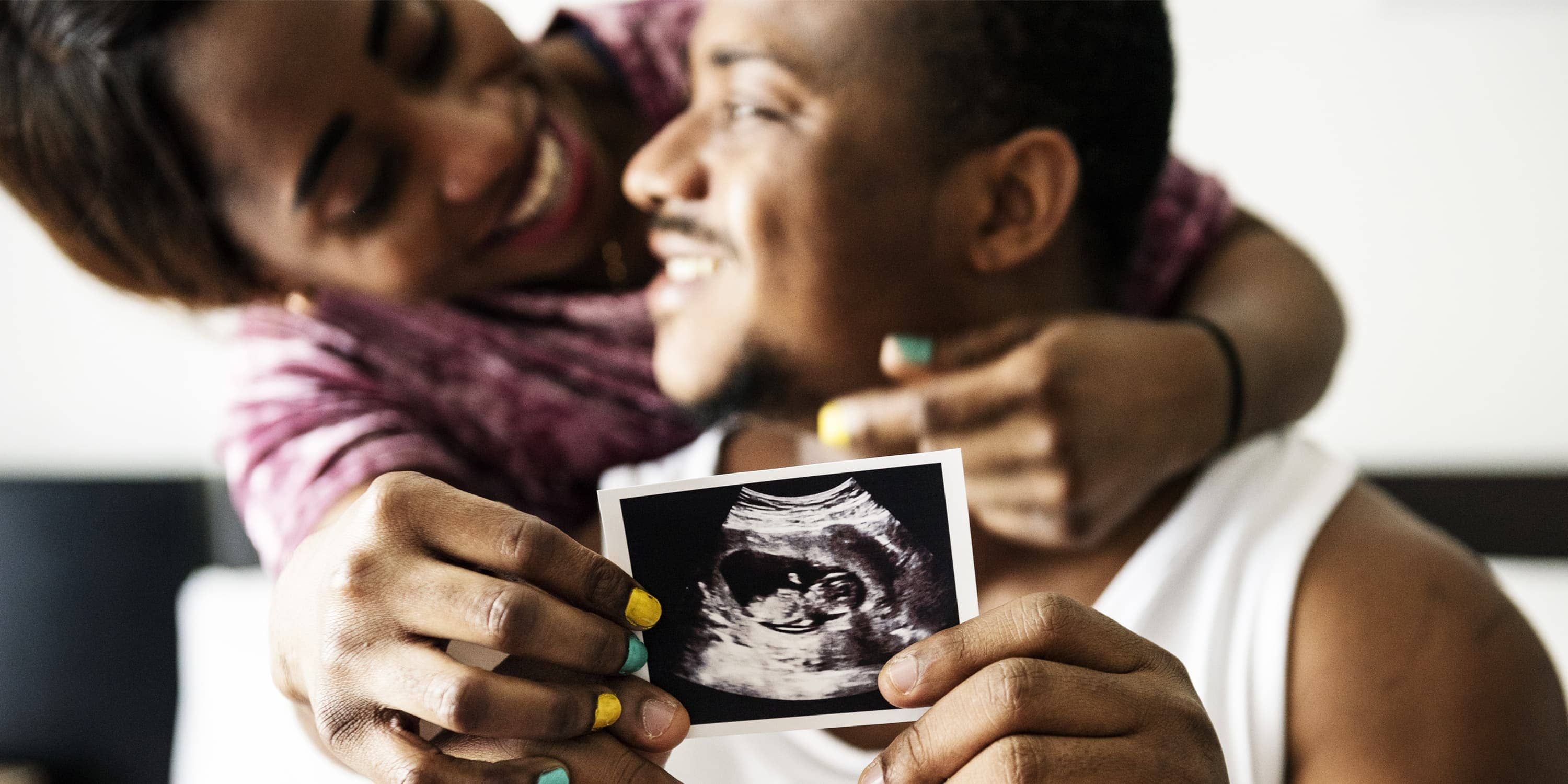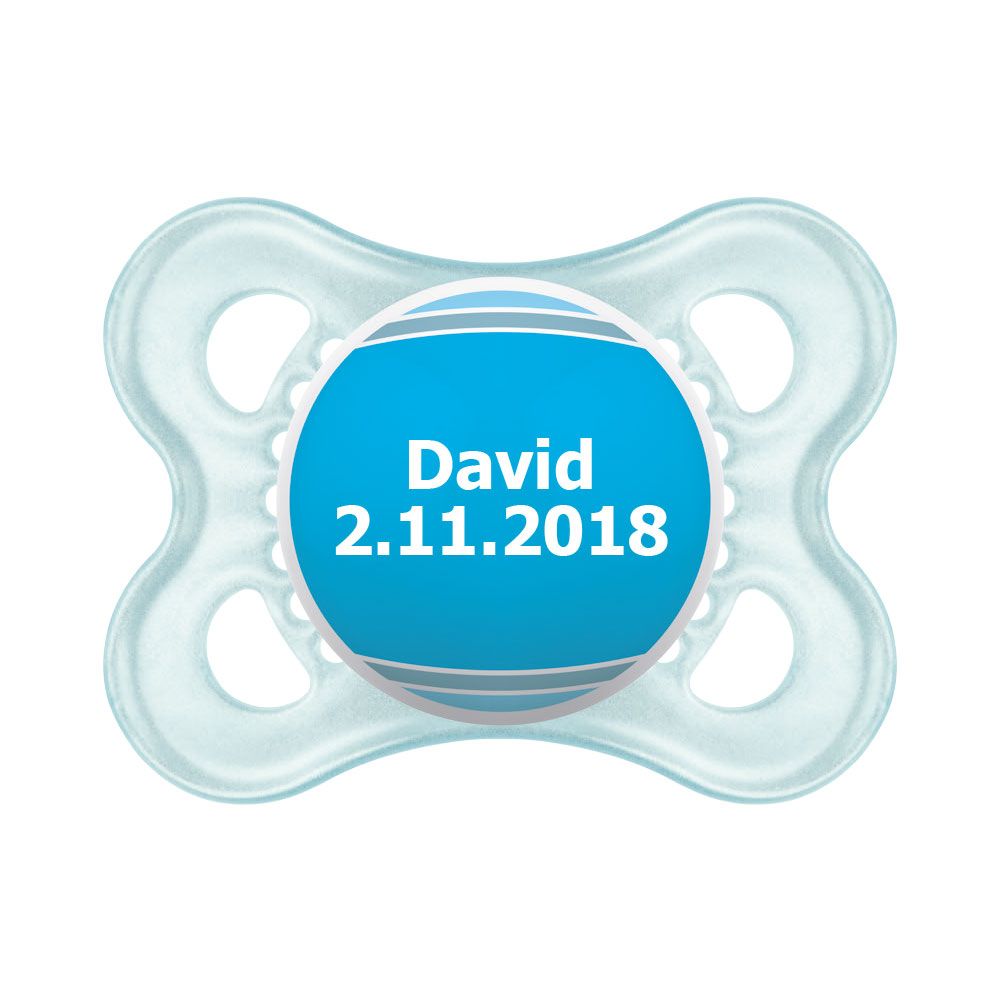From the 15th pregnancy week onwards, the baby's sex can be seen on the ultrasound if the conditions are good. However, the chance of getting it wrong is up to 20% – generally due to mistaking the umbilical cord or a finger for a penis. Read on to discover the surprises that are still waiting for you!
What's going on inside you at 15 weeks pregnant?
The foetus is around 9.5 cm long and weighs about 70 grams.
Although the eyes are closed, beneath the eyelids the cornea, iris and lens have fully developed. The liver and pancreas are working already.
Your baby is now roughly the size of a lemon.

Your baby drinks the amniotic fluid and can also excrete it as urine since the kidneys are working already. They also filter waste substances out of the baby’s blood. The amniotic fluid is constantly being replaced, so excretions are also removed. In the 15th week of pregnancy there is, on average, 150 ml of amniotic fluid, but the volume is slowly increasing. The amniotic fluid does not simply protect the baby, it is also important for maturing the lungs.
The diameter of the head is generally used to check the development. It should now be around 30 mm. If you have an ultrasound scan now, you might already be able to tell the sex – provided that the foetus does not have its hand in the way or cross its legs.
How do you feel at 15 weeks pregnant?
Fluid retention does have one positive: it smooths out all the wrinkles! Along with great hair, this is another nice side effect in the second trimester.
Apart from this, some pregnant women find they are rather forgetful around now. Studies have shown4 that this is actually due to changes in the brain: regions that are responsible for emotions and problem-solving become larger. The focus is more on your future task as a mother and your pregnancy, so other things mentally fade into the background. Lack of sleep and hormones can also make you forgetful.
Dependent on risk, some women will be offered additional screening procedures during pregnancy. One of those additional tests is an amniocentesis, which can take place from the 15th week onwards.
How is amniocentesis performed?
Flakes of skin are now starting to detach from the foetus and float around in the amniotic fluid, so in an amniocentesis (sampling the amniotic fluid) these skin cells and amniotic cells (from the amniotic sac) are removed and tested for defects. To do this, a needle is inserted through the abdominal wall into the amniotic sac and 10-20 ml of amniotic fluid is extracted.
To avoid injuring the baby, this is done using an ultrasound image for guidance. The baby cells in the amniotic fluid are removed with a needle, and then propagated and tested in the laboratory. The initial results will be available in 1-2 days. The actual procedure lasts just 5-15 minutes and is relatively painless (comparable to having an injection).
The advantage is that it allows any chromosomal abnormalities to be reliably detected. The disadvantage of this "invasive method" is the risk of miscarriage (although it is a small risk). The expectant mother should look after herself after the test.
Has your sex drive suddenly increased – or have you lost all interest?
One surprising side effect of pregnancy at this stage is sudden nosebleeds due to the improved blood flow. Constipation and shortness of breath are also possible. More energy and improved libido are also possible. As is the exact opposite. It all depends on how you respond to the hormones and how much sleep you are getting.
The physical changes during pregnancy also differ considerably from one woman to the next. It can be difficult to say what is and isn't "normal". If you aren't feeling well, if you have the feeling that something isn't right or if you have inexplicable pain, speak to your Midwife or doctor just to be on the safe side.
Photo: Shutterstock






